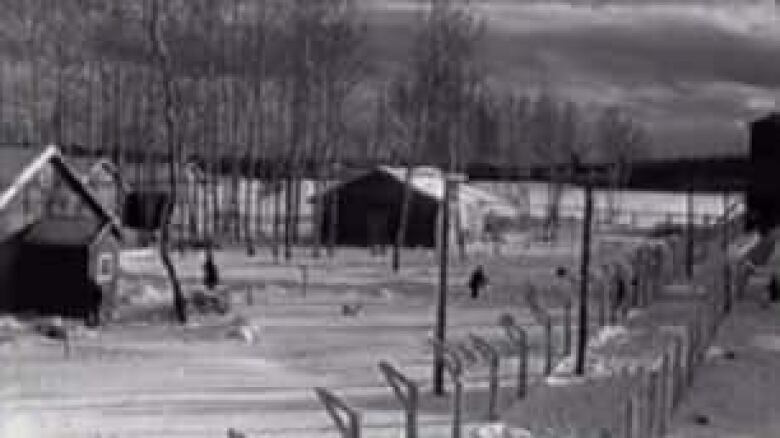Apology to interned Italian-Canadians questioned
Son of interned man says private member's bill to force apology not worthwhile

"An apology asked from a politician, an apology that's sought and begged for — it's hollow; it's not worth anything," said Ottawa resident Salvatore Pantalone, 86.
A private member's bill that would see the government make an official apology to Italian-Canadians for their treatment during the war passed in the House of Commons on April 28 and is being considered by the Senate.
Apology bill
Bill C-302 was brought forward by Massimo Pacetti, Liberal MP for the Quebec riding of Saint-Léonard-Saint-Michel. It passed in the House of Commons on April 28 with the support of all parties except the Conservatives. If it also passes in the Senate:
- The prime minister will make an apology in Parliament.
- A $2.5-million fund will be set up to produce educational materials related to Italian-Canadian history.
- Canada Post will issue a stamp commemorating the internment of Italian-Canadians during the Second World War.
As prime minister, Brian Mulroney made an unofficial apology to Italian-Canadians in 1990. Fifteen years later, then prime minister Paul Martin announced his government would spend $2.5 million to tell the story of Italian-Canadians affected by Ottawa's wartime measures.
Pantalone's father, Fred, spent seven months doing hard labour at a camp in Petawawa, Ont., in 1940. That was the year the government of Prime Minister William Lyon Mackenzie King authorized the Royal Canadian Mounted Police to take steps to intern Canadians of Italian origin, who were classified as "enemy aliens" after Canada declared war on Italy.
At that time, Fred Pantalone had been a Canadian citizen for 30 years and was a lieutenant with the Ottawa fire department. He had served there for more than a decade and had helped put out the fire on Parliament Hill in 1916.
"The Mounties arrived and handcuffed him in front of his platoon, which was very demoralizing, offensive, embarrassing," recalled his son, who was about 14 at the time. "We never saw him again for seven months."
Police also confiscated the family's property, including their new Plymouth car.
The elder Pantalone was never charged with a criminal offence and was eventually released. He burst through the front door of his family's home on a cold, winter's night, huddled up in his winter clothing, then sat down on a chair, sobbing, his son recalled.

Fred Pantalone never got his firefighting job back, nor did he ever receive his pension from the fire department. Instead, he worked as a taxi driver and in a bakery before joining the Canadian navy in 1942.
"He became the fire marshal for the largest ammunition dump in Canada," said Savatore Pantalone.
Pantalone said his father was never bitter about his country's decision to intern him, and neither is he.
"It was war time, and it'd be not much of a country if they didn't take precautions," he said.
Fred Pantalone did get an apology from the judge involved in his internship.
"A real letter of apology — not asked for, not solicited. [It said,] 'This man should never have been arrested, should never have been detained'," his son said.
He said his father was most hurt that his fellow firefighters held a union vote and were unanimous against taking him back. If anyone owes his father an apology, Pantalone said, it's the Ottawa fire department.
Corrections
- Then prime minister Paul Martin announced his government would spend $2.5 million to tell the story of Italian-Canadians affected by Ottawa's wartime measures 15 years after Brian Mulroney's apology, not five years after as previously reported.May 07, 2010 8:19 AM ET